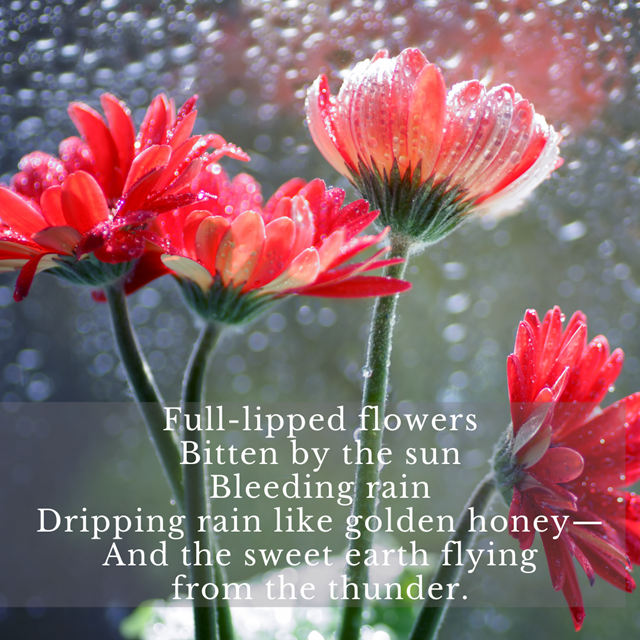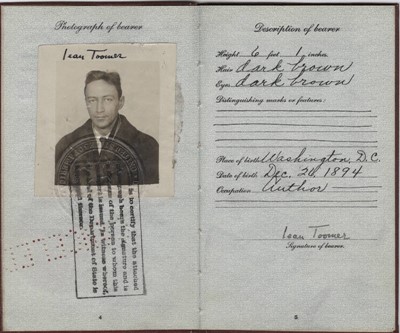
The Buckley School's founder believed that all public speakers should hone their presentation skills by reading poetry out loud. We keep that worthwhile practice alive by including a poem in our magazine each month for you to read aloud.
“I made up a language in which to exist.”
– Elizabeth Alexander, from her poem "Toomer"
Throughout his life, writer Jean Toomer resisted being classified by race, preferring to call himself an American. Yet his most acclaimed work, the book Cane, was inspired by his experience as person of mixed race living in the Jim Crow South.
Toomer also avoided associating himself with Modernism, though his work is often categorized with T.S. Eliot and other leading writers of that movement.
"Toomer probably wanted to live as he pleased outside the strictures of segregation and Jim Crow laws, to be judged as a writer for his talents alone, on their terms; to be free to chase the dreams about which he fantasized; to love the women he loved, without concern about the law — to live freely. And who can blame him?"
– Henry Louis Gates Jr. and Rudolph P. Byrd, writing about Jean Toomer
Cane, described by some as a novel, is an experimental work combining poetry and stories. "From three angles, Cane's design is a circle. Aesthetically, from simple forms to complex ones, and back to simple forms. Regionally, from the South up into the North, and back into the South again," Toomer wrote.
 Toomer's passport from 1926, with a photo taken not long after "Cane" was published.
Toomer's passport from 1926, with a photo taken not long after "Cane" was published.
Cane was published in 1923, written after Toomer had worked briefly as a high school principal in the rural town of Sparta, Georgia. Toomer, the grandson of the first U.S. governor of African-American descent, was educated in elite schools—both all-white and all-black segregated schools—and traveled extensively through his young adult years. He wrote to Sherwood Anderson about the effect that being in Sparta had on him: "Here were Negroes and their singing. I had never heard the spirituals and work songs. They were like a part of me. At times, I identified with my whole sense so intensely that I lost my own identity."
"It is oracular, delirious and American — rich with the intensities of Melville, the expansiveness of Whitman and Toomer's own bedeviling preoccupation with color."
– Pahrul Sehgal, N.Y. Times book review
After the success of Cane, Toomer continued to write but little of his work was published. Today, he is regarded as a major figure in African-American literature. Below, we provide a Toomer poem for you to read aloud.
Storm Ending
BY JEAN TOOMER
Thunder blossoms gorgeously above our heads,
Great, hollow, bell-like flowers,
Rumbling in the wind,
Stretching clappers to strike our ears . . .
Full-lipped flowers
Bitten by the sun
Bleeding rain
Dripping rain like golden honey—
And the sweet earth flying from the thunder.






